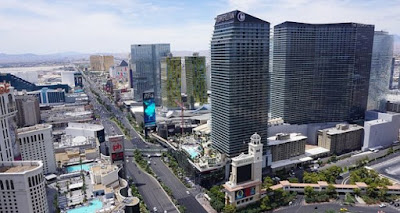Gary Tharaldson shares
tales of his business career during a talk at Minnesota State
University Moorhead on Monday, April 16. Dave Olson/The Forum
MOORHEAD—Successful entrepreneur and hotel
magnate Gary Tharaldson shared stories from his business career during
an event at Minnesota State University Moorhead on Monday, April 16,
wowing his audience with tales of how a boy who grew up near Dazey,
N.D., on a farm that didn't have running water built a company that was
sold to its employees in 1999 for about $1 billion.
About 15
years later, those employees walked away with about $600 million when
they sold the company, providing many with a significant retirement
fund, according to Tharaldson.
He
said creating the employee stock ownership plan that made that possible
is one of his proudest accomplishments in a career that is still going
strong and is now chronicled in a book titled, "Open Secrets of Success:
the Gary Tharaldson Story," which is available on Amazon and was
written by Patrick J. McCloskey.
Tharaldson said the book
reflects his long-held practice of answering questions anytime people
ask him how he has gotten to where he is.
When it comes
to building hotels, Tharaldson's formula is simple: he teams only with
high-quality brands like Marriott and only builds in areas where
demographics almost guarantee success.
To help ensure
that, he said he determines who the major competitors are in a community
and then builds hotels with about 20 percent fewer rooms, which he says
usually results in higher occupancy rates and above-average profit
margins, usually around 40 percent.
"I stack the deck for
myself," Tharaldson said, adding that success comes in many forms and
for him it's not necessarily making lots of money.
"If you're truly doing what you love to do, then you're successful," he said.
Asked
what he feels are his three strongest talents, Tharaldson listed
attitude and a willingness to learn, as well as adopting a common sense
approach to most things.
When he struggled to come up with a third talent, his wife, Connie, supplied the rest:
"He never gives up," she said. "He finds a way to keep going and never, ever, gives up."
Tharaldson
told the audience, which was mainly MSUM students, that a major part of
what has made his hotels successful is the fact employees were given a
stake in whether the business succeeded or not.
"They acted like owners. They took pride in everything they did, knowing someday there would be a payday," Tharaldson said.



















